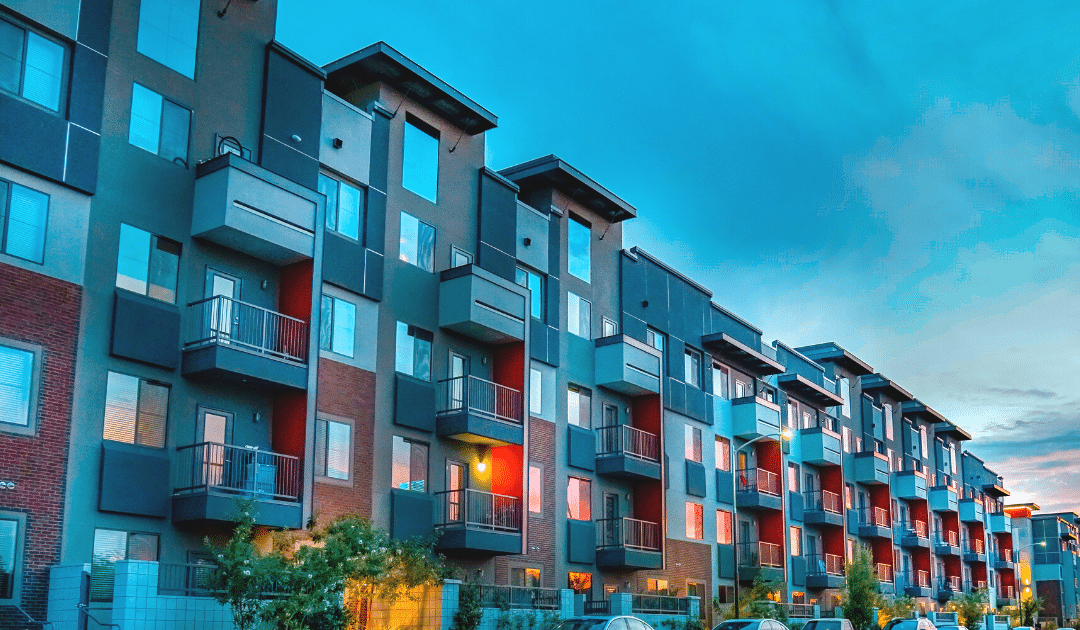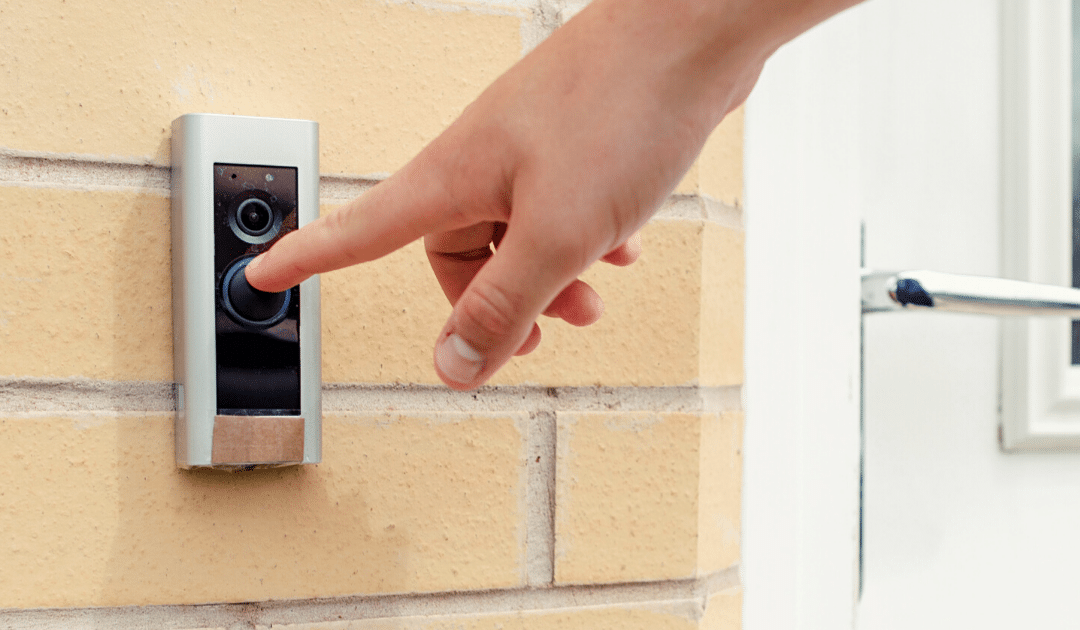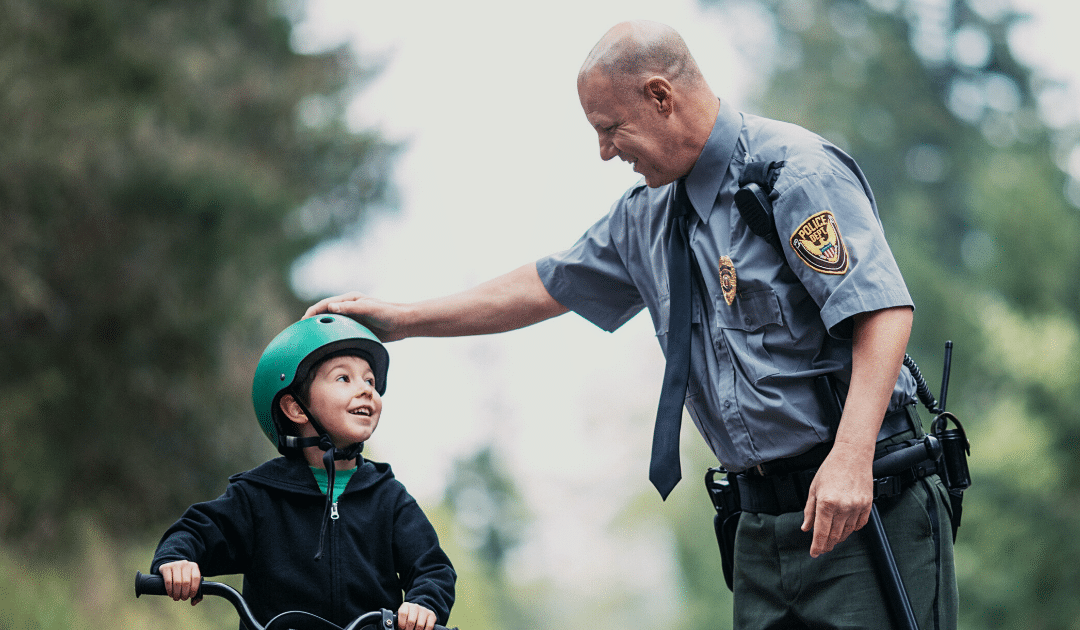
by California Casualty | Homeowners Insurance Info |
Millions of Americans choose to rent over buying homes and apartments each year, and there are a ton of advantages. For instance, if a window starts leaking or the stove dies, you don’t have to pay for repairs or replacements. You have the flexibility to move when you want (subject to your lease), “try out” new cities, and avoid the big costs that go along with mortgage loans and homeownership.
To be a good tenant and start your rental out on the right foot, here are some important renter do’s and don’ts.

Do’s
Understand your lease – Make sure you and your landlord review the lease together and that you ask any questions you have. For example, does the lease allow subletters? What’s the duration and does it change after the first year?
Write an inventory – Make sure to document and log all existing damage or broken/non-functional items before you officially move in. Take photos and indicate any damage on a floor layout/ diagram. You don’t want to be on the hook for these repairs when you move out.
Understand your responsibilities – As the tenant, you may be required to do things like shovel the walk, keep the lawn mowed or hire a pool service.
Document problems – If there are ongoing issues or needed repairs, make sure you write down what happened, take pictures, etc. Alert your landlord to issues right away so they can take action. Keep a paper trail and keep it all in one place.
Keep it clean – Neglecting to bring the garbage bins in from the sidewalk or to keep the yard clean or tidy can quickly create an enticing environment for pests and rodents.
Check-in with your landlord – For minor repairs or maintenance, such as unclogging drains or replacing caulk or window screens, it’s best to check in with your landlord about how they want to address it (even if you’d like to just take care of it yourself). if you are unsure of anything or have questions regarding the property, like painting rooms or changing landscaping, reach out to your landlord.
Give them a heads up – On things like leaks, structural or foundation issues, and pest problems, alert your landlord as soon as possible so they can act on a problem that could get worse quickly or cause costly damage.
Protect your deposit – Besides treating your place well while you live there, when you move out, do a quality deep clean and don’t leave furniture or anything else behind that they’ll need to deal with.
Be a good communicator (and neighbor) – Good communications can prevent or de-escalate miscommunications and disagreements with your landlord as well as neighbors.
Know your rights – It’s important to know your rights as a tenant. They vary by state and city, so go here to learn more.
Get renters insurance – Renters insurance protects your belongings from theft and damage (nope, your landlord’s insurance won’t cover your things). It’s surprisingly affordable – get a quote today.

Don’ts
Hide a pet – If your lease specifies no pets, stick to the agreement (hiding a pet won’t work over the long term). Also make sure to adhere to animal weight limits, which are often established to allow only cats and small dogs in an apartment complex. Consequences for breaking these rules can include a hefty fine or even lease dismissal.
Undertake big renovations – We all want to make our homes more home-y, but complex projects such as adding ceiling fans or replacing cabinetry should only be undertaken by the property owner.
Fall behind on the bills – Depending on your lease agreement, you may end up being responsible for bills such as utilities, water, garbage, recycling, gardener, pest control or pool maintenance. Keeping those accounts current will ensure smooth maintenance as well as strengthen your credit.
Create a mildew problem – One of landlords’ most frequent complaints is about tenants not keeping moisture levels in check. To prevent mold and mildew formation, make sure to use vents and fans in bathrooms during (and after) every shower.
Cause damage – Treating your rental with care and respect will mean lessening the chances of inflicting damage such as stained carpets, scratches in hardwood, broken windows or fixtures, large holes in the walls, and water damage from plants. It will also ensure you get more (if not all) of your security deposit back. If accidental damage does occur (we’re only human, after all), make your landlord aware of it ASAP.
Landlords choose their tenants very carefully – especially those with nice properties. By taking care of your rental home and maintaining a good relationship with your landlord, you will set yourself apart as a responsible tenant. This will positively affect your credit score, help you get your whole security deposit back, and ensure you have a good reference for that next great rental.
This article is furnished by California Casualty, providing auto and home insurance to educators, law enforcement officers, firefighters, and nurses. Get a quote at 1.866.704.8614 or www.calcas.com.

by California Casualty | Homeowners Insurance Info |
You’ve got a few tools at your disposal for protecting your possessions. First, there’s homeowner’s insurance in the case of theft or loss, but you can also take steps to prevent theft in the first place, by getting a quality home security system.
There are lots of great options out there, and as technology continues to progress, the choices keep expanding. In fact, it can all be a bit overwhelming, so let’s dive into the top considerations you’ll want to look at when choosing a security system – including your first decision point: whether to go with a DIY or a professionally installed system.
DIY vs. Professionally Installed
DIY systems come as packaged kits that you need to install yourself. For most, you’ll be doing the security monitoring, usually via a smartphone app, but some require you to pay for professional monitoring. Professionally installed systems, on the other hand, are installed by a technician, and monitoring is done by the company (trained dispatchers verify triggered alarms and dispatch authorities when needed).
DIY Systems:
Pros
-
-
- Flexibility in tailoring a system to your needs
- Less expensive and usually no monthly fees
Cons
-
-
- Requires you to install the system correctly
- You’re responsible for monitoring (i.e. not missing a smartphone alert!)
Pro-Installed Systems:
Pros
-
-
- System is expertly installed by a trained technician
- 24/7 monitoring by professionals who can dispatch at a moment’s notice
Cons
-
-
- More expensive, with installation and monthly service fees (as well as potential false alarm fees, add-on components, and other fees)
- Usually require multi-year contracts
Popular Systems
Here are some of the most well-known and top-rated systems on the market. In your research, you may find others as well.
DIY Systems:
Pro-Installed Systems:
7 Additional Considerations
As you further hone your choices – be they DIY or pro – here are some other things to take into account.
1. Wireless vs. wired. Systems can be wired or wireless (or sometimes have elements of both). The basic difference is that your control panel and network of sensors are on either a cellular or a landline connection. What you choose will depend on what you need from the system. That said, always make sure to choose a system that includes two-factor authentication for extra security.
2. Pick a system that fits your lifestyle. For instance, is it mainly for when you’re out of town, or also while you’re at home? Do you want it to do smart-home integration, like turning lights off/on, controlling the thermostat, or have sensors for fire, water leak, and glass breaks?
3. Tailor it to your home. For instance, homes with large yards or outdoor areas typically need cameras; condos or apartments can get away with simpler systems.
4. Do your research. No matter if you’re installing your own system or going with a company, learn about all the components available – oftentimes, your system will be a tailored combo of what makes the most sense for keeping your home safe and secure. Systems can include any of the following: control panels, base stations, keypad, locks, contact sensors, motion sensors (interior and exterior), entry sensors, key fobs, glass break sensors, security cameras, door and window sensors, and a variety of different alarms and/or sirens. Most also have signs for your yard or windows to advertise that yours is a secure home.
5. Freedom vs. convenience. If going the DIY route, weigh whether you want the added security of having professional monitoring or if you want to do this yourself. If you’d rather not have that constant responsibility (or stress), that will limit your choices for DIY systems.
6. Conduct due diligence. If you’re leaning towards pro-installed, make sure you get three custom quotes and are clear about how the contracts differ and their terms. Also, take advantage of an in-home consultation if the companies offer it.
7. Check with your local police department. Some municipalities require that anyone running their own security system with professional monitoring obtain a permit. This ensures that their law enforcement and authorities are aware of alarm systems in their jurisdiction.
Choosing the right home security system is a highly personal choice that depends on your lifestyle, budget, home features, and the value of your belongings. Do your research and take your time – but also give yourself a high-five for taking action! Security systems can not only save you money from potential theft, but also prevent the trauma of dealing with a break-in (no one needs that stress right now!). Good luck and also remember to make sure your home insurance is up to date.
This article is furnished by California Casualty, providing auto and home insurance to educators, law enforcement officers, firefighters, and nurses. Get a quote at 1.866.704.8614 or www.calcas.com.

by California Casualty | Auto Insurance Info |
Do you have a car loan? If so, welcome to the (big) club! – Americans owe a collective $1.3 trillion in auto loan debt. Yikes!
If you’re like most others, you’re probably wondering how you can pay your loan off faster. Below are some strategies, tips, and tricks to help you get to the finish line sooner rather than later. The best thing is, you can start on all the below right away!
- See if there’s a prepayment penalty – Some lenders disincentivize early payoff (because they want the interest) by including this penalty in your loan terms. If yours includes this, you’ll need to do some calculations comparing which method will be wiser: pay off early with the penalty or pay off over time as normal (with the interest).
- Consider refinancing – If your loan has a high-interest rate, shop around for other loan options. These could include your bank, a different bank, a credit union or even a credit card with a good transfer option. If your credit score has improved since your original loan, you’ll probably be able to get a better deal. Go for a shorter loan term rather than a long one – the goal is to pay it off quickly.
- Round up – This is an easy and relatively painless way to start knocking down the debt when your budget doesn’t have a ton of wiggle room. The idea is to round up your regular payments as much as you can afford. If your payments are $350, round up to $400. Over time, those extra dollars add up.
- Cancel the extras – When you first took out your loan (especially if you did so through a dealership), you may have added on some extras such as service contracts, GAP (or Guaranteed Asset Protection) waivers, extended warranties, service contracts or warranties for tires and wheels. Unless these are truly useful, consider canceling them.
- Make bi-weekly payments – If you usually pay monthly, you can play a mental trick on yourself to make a good dent on your loan. Split your normal monthly payment in half and make that payment every two weeks.
- Use a windfall – Windfalls are an excellent strategy to pay off debt, invest, make IRA contributions or enable purchases that seem out of reach. If your car loan is priority, use any unexpected influx – from a tax return, work bonus, cash gift, etc. – and put a chunk down on your loan. Check to make sure any extra payment you send will go to reducing the principal, instead of toward interest or other fees.
- Start a side hustle – This could be short-term or temporary, but earning extra income is a great way to pay off part or all of your loan balance in a fairly short amount of time. Even just a few weeks or months could do the trick.
- Consider selling your car – If you owe a lot on your vehicle or circumstances (such as financial, family or commute) have changed significantly, you may want to consider selling your vehicle and getting a more affordable one instead.
- Pare down expenses – A great rule for ongoing financial health is to do regular budget checks. If you haven’t done so in a while, check out our guide and see where you can free up cash to put towards paying off your loan.
- Snowball your payments – “Snowballing” is a debt paydown strategy that goes like this. First, rank your loans/debts from lowest to highest. Then, focus on the smallest loan, paying it off as quickly as possible while making the minimum payments on the rest. Once it’s paid off (and after you’ve done a happy dance), start the process again, using the “extra” money you would have been paying to that first loan and applying it to the next.
If you’ve read this far, congrats on taking the first step to pay your loan off faster! Your two most important tools in reaching your goal are having a plan and having the discipline to execute on it. These actions will not only get you your pink slip faster but also decrease the amount of interest you’ll pay over the life of the loan. Get started today – you can do it!
This article is furnished by California Casualty, providing auto and home insurance to educators, law enforcement officers, firefighters, and nurses. Get a quote at 1.866.704.8614 or www.calcas.com.

by California Casualty | Firefighters, Peace Officers |
Ask any first responder why they chose their profession, and the overwhelming answer is that they were called to serve and help others. Chances are, this was yours too.
The last couple of years have been like no other, with you and your fellow first responders on the frontlines of multiple crises facing our communities and nation all at the same time. It’s been rough going.
But sometimes the antidote to tough times is to reconnect with your “big why” – the reason(s) you signed up for this profession in the first place and why you and your colleagues keep showing up every day, no matter what the day brings. Here are some common “why’s” we hear from first responders – what resonates for you?
Making a Difference
This is one of the few careers where your actions, talents, and presence can make a literal life and death difference. You have a direct impact on improving communities and making them safer. In your role, you often lead by example and can positively influence others, which means you have the privilege of helping someone become their best self.
Camaraderie
There’s no feeling quite like being part of a team or unit with a higher purpose. Everyone has their role and is there to support and work with each other toward a common goal. You may go through tough, grueling situations together – some are tragic, but others offer up the best of humanity too. This is your support network that understands you and shares the emotional and mental challenges that come with the job. For many, your “work family” ends up being your closest life-long friends.
Physical Activity
First responder jobs require physical strength and stamina. The profession demands that you stay in shape and in top form – ready for whatever physical challenges the day may throw at you. Many first responders maintain their fitness by running, lifting weights, hiking, and other outdoor activities. This primes you for long days and long hours, bouts of intense activity, and sudden emergency situations.
Flexibility and Mobility
There’s no 9-to-5 here! Your profession offers flexible hours and variety in terms of different placements, shifts, and rotations. For some, this flexible schedule allows them to work a second job or pursue other interests or hobbies. Another perk: You can also work wherever you want! Your skills and training are in demand in cities and communities across the country (and globe, really), which gives you the unique advantage of being able to pick and choose.
No Two Days Are the Same
For a first responder, the constant is change. Each day is different – one day could be an emergency call across town; the next, a day of paperwork in the office; and the next, patrolling a neighborhood that’s experiencing a crime wave. You never know what the day will bring, but you always bring the skills and experience to deal with whatever the situation calls for. If you thrive in these kinds of environments, you picked the right career.
A Reason to be Proud
Because you and your colleagues save lives, stand up for what’s right, and are called to serve others, you’re respected by your communities. Integrity and duty are baked into this career, so you consistently earn the loyalty and admiration of colleagues, friends, family, and community members.
Continual Self-Improvement
This line of work usually includes opportunities for professional development, continuing education, and obtaining training or new skills. If you want to pursue a specialty within your profession or even branch out to another division, there’s usually a clear path and support. Additionally, because this work is mission-driven, it invites self-reflection and personal growth.
Connection with the Community
As a first responder, you build relationships within your community and the neighborhoods you serve. You have the satisfaction of seeing your efforts pay off over the long term. And you’ll be able to team up with organizations and individuals, united in a shared goal of strengthening community bonds.
If anyone is built for resiliency during tough times, it’s you, our first responders. But on those tough days, remember your big why’s and also that your communities and neighbors are grateful for and appreciate you. Sometimes it’s not said enough, but we thank you so much for your service and commitment to keeping us safe!
And finally, if you’re someone who’s looking at pursuing this career, talk to first responders about their experience and advice. Look at enrolling in courses or joining mentoring or other programs offered by your local agencies. You’d be hard-pressed to find a more demanding, mission-driven, and rewarding career.
This article is furnished by California Casualty, providing auto and home insurance to educators, law enforcement officers, firefighters, and nurses. Get a quote at 1.866.704.8614 or www.calcas.com.

by California Casualty | Pets |
We’re coming up on a year of the pandemic, and one of the biggest side effects has been loneliness and isolation. For some, that’s especially trying during Valentine’s Day (on the heels of the winter holidays!). Stress, anxiety, and depression are among the top adverse mental health effects emerging from a year of lockdowns and quarantine.
For many pet owners though, their furry family members have been a solace – even a source of joy and grounding – during an unprecedented time of difficulty. This is no surprise to scientists, who have long studied how animals help combat loneliness and provide companionship. Here are some of the ways our four-legged (and other!) lifesavers have been helping us emotionally and boosting our mental health.

They give us a sense of purpose
Having a routine and caring for another being gives us a sense of meaning and purpose. Animals don’t know we’re in the middle of a pandemic, so there’s comfort in seeing them carry on life, as usual, content and happy in the moment.

They provide companionship
They’re our friends and companions – making us laugh, inviting us to be present, and loving us no matter what. And for so many of us, they’re suddenly our new workmates, bombing our zoom calls and taking over our keyboards. They offer their steady presence – at the bedside in the morning, in our laps as we’re trying to read, underfoot at dinner time. No matter what happens in our day, they’re there for us.

They keep us active
Well, at least in the case of dogs, who will keep us to a walking schedule (whether we like it or not!). Once out and moving, we can reconnect with nature, wave to neighbors, and fill our lungs with fresh air. They can help us break up the monotony of the day with some movement and downtime.

They’re our family
No matter how big or small, there a reason we call them our “babies.” We form deep, emotional attachments to our pets, a neurological bonding process that goes back to our pre-history of animal domestication. They have a seemingly endless supply of love to dole out and are there for us whatever mood we’re in. For children and teens, this can be especially important during the pandemic.

We’re wired for connection
Pet and animal therapy have been proven to help the elderly and those with cognitive conditions. We may not fully understand the science, but it’s well-known that just being around animals helps so many. It can lower stress, improve emotional self-regulation, decrease pain symptoms and boost positive hormones.
Given all the benefits pets bring us, it’s no wonder pet owners are feeling extra grateful these days and that pet adoptions have been skyrocketing. If you’re thinking of adopting, do your research, make sure you’re ready to commit long-term, and be a responsible adopter.
This article is furnished by California Casualty, providing auto and home insurance to educators, law enforcement officers, firefighters, and nurses. Get a quote at 1.866.704.8614 or www.calcas.com.












